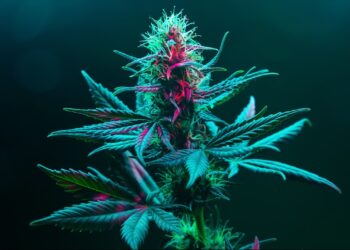Illinois awarded about three dozen new social equity dispensary conditional licenses in the state’s second round of social equity lottery licensing since the state legislature legalized adult-use cannabis in 2020.
The Illinois Department of Financial and Professional Regulation which oversees the state’s legal cannabis market, approved 35 new social equity dispensary licenses on May 3. The conditional licenses grant awardees a year to build out their operations and gain local approval. The department said it expects to issue 13 more conditional licenses in the near future.
Illinois currently has 202 adult-use dispensaries in operation, of which 92 qualify for social equity status, according to a press release. Another 108 social equity conditional licenses awarded in 2022 are still not open for business.
“Today’s announcement is yet another success story for Illinois placing equity at the forefront of legalizing cannabis,” Gov. J.B. Pritzker said in the press release. “Righting the wrongs from the failed drug war means more jobs and opportunities in the communities hit hardest, which will mean more resources to ensure Illinois’ cannabis industry remains the most equitable in the country.”
The conditional license awardees were originally selected in July 2023 through a lottery that included 2,666 entries. Applicants were competing for a total of 55 available licenses that were split between 17 regions of Illinois. Most of the regions got a single license, with the exceptions of East St. Louis getting three, Peoria getting two and the greater Chicago area receiving 36.
From the original pool of 55 social equity lottery winners, seven failed to show they met the criteria for social equity status. In those cases, the runner-up applicant from their respective lottery will be contacted to see if they qualify.
Social equity status requires an applicant company be at least 51% owned by someone who has spent five of the last 10 years living in a state’s designated “disproportionately impacted area,” has a prior cannabis-related conviction or is related to someone who does, or employs more than 10 workers and more than half qualify for social equity status.
The Cannabis Business Association of Illinois (CBAI) praised the move, while conditioning that economic challenges persist for existing license holders.
“We applaud the Pritzker administration for releasing new social equity licenses for cannabis business owners as we support a diverse cannabis industry for all,” said CBAI Executive Director Tiffany Chappell Ingram. “Our goal is for all license holders to be set up for success, but much work remains before that is reality.”
Ingram noted that despite the addition of new licenses, prospective operators from the original round of social equity dispensary licensing still struggle to open shop.
“Several conditional dispensary licenses approved in prior lotteries are still not operational. We are committed to working with the state of Illinois to implement policies to remove obstacles and improve our state’s cannabis market, including increasing access to capital, eliminating regulatory inefficiencies and better data collection to understand how we can support license holders,” she said. “For the sake of all licensees and protecting Illinois’ tax base, we must also rein in the unregulated intoxicating THC marketplace that is undermining our state’s legal cannabis program.”
The state established a social equity fund intended to aid social equity applicants in becoming operational. The $12 million fund offers low-interest, forgivable loans fully financed by the state, if the borrower provides proof of eligible expenses. Loan amounts of up to $240,000 will be provided to qualified, licensed social equity dispensaries, according to a March 3 press release. The second round of loan applications closed April 17.
Struggles aside, the Cannabis Equity Illinois Coalition applauded the new licenses.
“The Coalition welcomes the release of these licenses, and we’re excited to support these new social equity businesses,” said Executive Director Douglas Kelly. “We call on the governor’s office to finally release the state’s disparity study, so we can release new licenses to address the longstanding disparities and barriers to the legal cannabis industry.”












